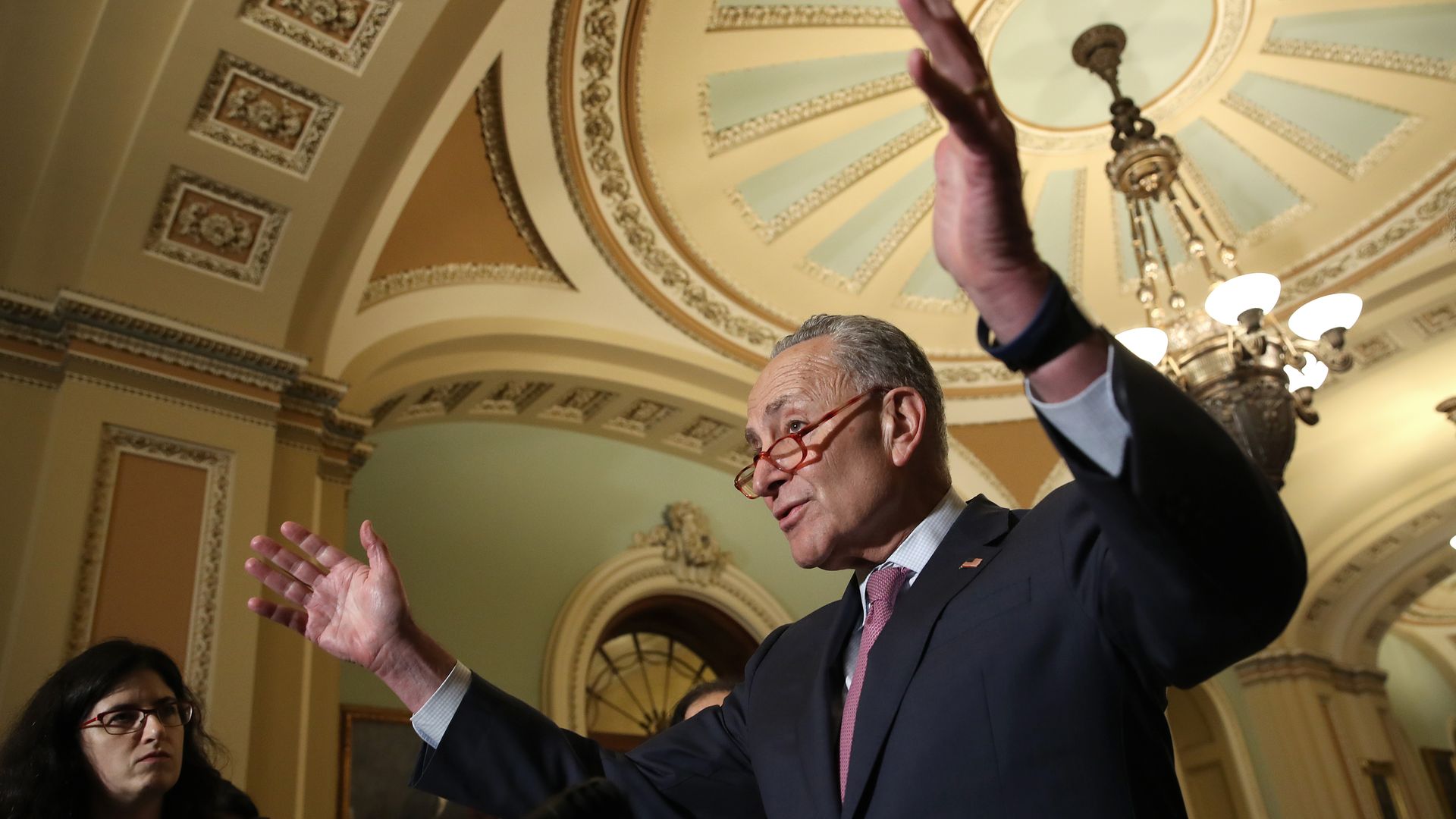A $100 billion proposal to boost U.S. AI funding
Add Axios as your preferred source to
see more of our stories on Google.

Senate Minority Leader Chuck Schumer. Photo: Win McNamee/Getty Images
A proposal for $100 billion in new funding for fundamental AI research is circulating Congress with bipartisan support, Senate Minority Leader Chuck Schumer said Tuesday.
Why it matters: Without a big increase in money for AI research, experts say, the U.S. is liable to fall behind fast-moving adversaries like China on critical emerging tech.
The big picture: The White House has hammered the need to stay ahead of competitors. But researchers say doing so will require far more funding than the roughly $1 billion currently earmarked for non-defense AI development annually.
- By contrast, Shanghai's city government alone plans to invest $15 billion in AI over the next 10 years. (Total Chinese government funding numbers are hard to come by.)
What's happening: Speaking at a conference arranged by the National Security Commission on AI, Schumer announced a "discussion draft" circulating in Congress and among companies.
- According to Schumer, the proposal would put $100 billion toward AI over the course of five years.
- It would also create a new agency under the National Science Foundation focused on emerging technology, which would work closely with DARPA, an agency that funds defense-related research.
- The new money would go toward universities, companies and defense agencies.
What they're saying: "We will do better dollar for dollar than the Chinese government in investing in AI," Schumer said. "But if they outspend us three, four, five to one — which they're doing now — we'll fall behind in five years or 10 years and we will rue the day."
- "This should not be a partisan issue," he added. "This is about the future of America."
- Schumer called on the conference attendees, which included some top Pentagon officials and Big Tech bigwigs, to push the proposal along.
- Despite wide support, he said the proposal does not have the "full-throated support" of President Trump and Senate Majority Leader Mitch McConnell.
